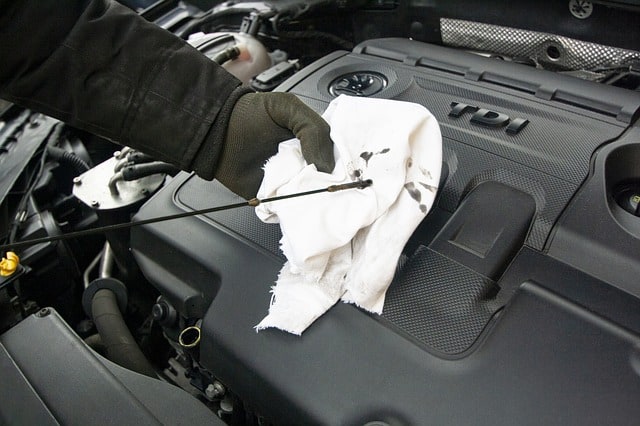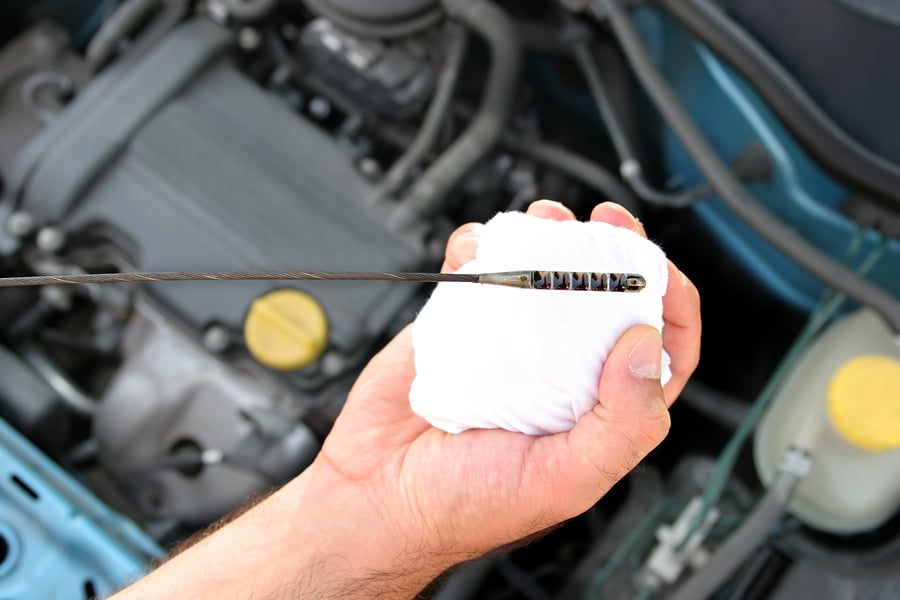How to Tell If You Need an Oil Change
To determine if you need an oil change, check for dark or dirty oil and listen for engine noise or decreased performance. Regular oil changes are vital for maintaining a healthy engine and ensuring optimal vehicle performance.
Failing to change the oil at the recommended intervals can lead to engine damage and costly repairs. By paying attention to the signs that indicate an oil change is needed, you can prolong the life of your engine and avoid potential breakdowns on the road.
Stay proactive in scheduling oil changes based on your vehicle’s manufacturer recommendations to keep your engine running smoothly and efficiently.

Credit: gtautomotive.com
Signs That Indicate The Need For An Oil Change
Keeping track of your car’s oil level and quality is essential for maintaining its performance and longevity. Regular oil changes are a fundamental part of vehicle maintenance, and neglecting this crucial task can lead to serious engine issues. Recognizing the signs that indicate the need for an oil change can save you from costly repairs and ensure your engine runs smoothly.
Visible Oil Leakage
If you notice visible oil leakage under your car when it’s parked or after driving, it could be a sign that your engine oil is leaking. Leaks can occur due to worn-out gaskets, seals, or a crack in the engine. Addressing this issue promptly can prevent further damage to your engine and the need for more extensive repairs.
Dark Or Dirty Oil On The Dipstick
Checking your engine oil regularly by examining the color and consistency on the dipstick is important. If the oil appears dark or dirty, it indicates that it has become contaminated with dirt and debris, losing its lubricating properties. This can lead to increased friction and wear on engine components. Changing the oil at this stage is crucial to maintain optimal engine performance.
Engine Noise And Knocking
Unusual engine noise and knocking can be an indicator of insufficient lubrication due to old or degraded oil. As the oil loses its viscosity, it becomes less effective in cushioning and protecting engine parts, leading to increased friction and potentially damaging the engine. If you notice any abnormal sounds coming from your engine, it’s advisable to have the oil checked and changed if necessary.
Decreased Fuel Efficiency
Decreased fuel efficiency is another red flag that could signal the need for an oil change. Contaminated or degraded oil causes the engine to work harder, resulting in increased fuel consumption. If you find yourself visiting the gas station more frequently than usual, it might be time to schedule an oil change to restore your vehicle’s optimal fuel efficiency.

Credit: www.hollenshades.com
Consequences Of Not Getting Regular Oil Changes
Regular oil changes are essential for your vehicle’s health. Neglecting this maintenance task can lead to several major consequences that can damage your engine and result in expensive repairs.
Increased Engine Wear
Failing to change your oil results in increased friction within your engine, leading to higher wear on vital components.
Reduced Engine Performance
Old, dirty oil causes your engine to work harder, leading to decreased performance and efficiency.
Overheating And Engine Damage
Inadequate lubrication from old oil can cause your engine to overheat, potentially leading to severe damage.
Expensive Repairs And Breakdowns
Skipping oil changes can lead to significant issues, increasing the risk of breakdowns and costly repairs.
Recommended Oil Change Intervals
Recommended oil change intervals: Knowing when to change your oil is crucial for maintaining the health of your car.
Follow The Manufacturer’s Guidelines:
Refer to your car’s manual for the specific timeframe recommended by the manufacturer.
Consider Driving Conditions And Habits:
- City driving might require more frequent changes.
- Long highway commutes may allow for longer intervals.
- Extreme temperatures can impact oil effectiveness.
Consult With A Mechanic:
When in doubt, seek advice from a professional mechanic to determine the best oil change schedule for your vehicle.
Benefits Of Regular Oil Changes
Regular oil changes are crucial for maintaining the health of your vehicle’s engine. By keeping your engine properly lubricated, you can experience a range of benefits that can ultimately save you money and extend the life of your car.
Extended Engine Life
Regular oil changes help to minimize friction between moving parts in the engine, reducing wear and tear. This ultimately extends the overall lifespan of your engine, saving you from costly repairs and replacements down the road.
Improved Fuel Efficiency
Fresh oil reduces the amount of friction within the engine, enabling it to run more efficiently. This can lead to improved fuel economy, saving you money on gas expenses over time.
Enhanced Engine Performance
By ensuring that your engine is constantly lubricated with new oil, you can maintain optimal performance levels. This results in a smoother and quieter engine operation, improving overall driving experience.
Prevention Of Costly Repairs
Regular oil changes can help prevent the buildup of sludge and deposits in the engine, reducing the risk of mechanical issues. This proactive maintenance can save you from expensive repairs and breakdowns, keeping your vehicle on the road.
Steps To Take When Getting An Oil Change
When it’s time for an oil change, there are a few steps to keep in mind. Look out for warning signs such as low oil levels, engine noises, or a check engine light. Bring your vehicle to a trusted mechanic or follow the manufacturer’s recommended guidelines for an oil change.
When it comes to maintaining the health and longevity of your vehicle, regular oil changes are crucial. Properly maintaining your car’s oil not only helps to keep the engine running smoothly but also prevents costly repairs down the line. Here are some important steps to take when getting an oil change:
1. Choose The Right Type Of Oil
Choosing the right type of oil for your vehicle is essential. Different engines require different types of oil, such as conventional, synthetic, or a blend. Refer to your car’s owner manual or consult a trusted mechanic to determine the appropriate oil viscosity and specification necessary for optimal engine performance.
2. Find A Reputable Mechanic Or Oil Change Service
Finding a reputable mechanic or oil change service is crucial to ensure a high-quality oil change. Look for certified technicians who have the knowledge and expertise to handle your specific vehicle make and model. Check online reviews, ask for recommendations from friends or family, and inquire about the products they use to make an informed decision.
3. Schedule Regular Oil Change Appointments
To maintain your vehicle’s health, it’s important to schedule regular oil change appointments based on your car manufacturer’s recommended intervals. This typically falls between every 3,000 to 7,500 miles, depending on your driving habits and the type of oil used. Regularly changing the oil will help prevent engine sludge buildup and optimize lubrication.
4. Keep Track Of Oil Change History
Keeping track of your vehicle’s oil change history is essential in ensuring timely and consistent maintenance. It’s a good practice to record the dates and mileage of each oil change in a logbook or maintain digital records. This will help you stay on top of when the next oil change is due, avoiding any potential gaps in service.
In conclusion, following these steps when getting an oil change will contribute to the overall health and performance of your vehicle. By choosing the right oil, finding a reputable service provider, scheduling regular appointments, and keeping track of your oil change history, you can ensure your engine stays properly lubricated and running smoothly for years to come.

Credit: dennisservicecenter.org
Frequently Asked Questions On How To Tell If You Need An Oil Change
How Do I Know If I Need An Oil Change?
You need an oil change if your car’s dashboard light or owner’s manual indicates it. Also, if the oil is dark, gritty, or has a burnt smell, it’s time for a change. Regular oil changes maintain engine efficiency and prevent damage.
How Long Can You Go Without An Oil Change?
Regular oil changes are crucial. Avoid going beyond manufacturer’s recommended intervals to prevent engine damage.
How Does Your Car Feel When You Need An Oil Change?
Your car may feel sluggish, engine light may come on, or it may make strange noises when needing an oil change.
What Happens If Oil Change Is Overdue?
An overdue oil change can lead to engine damage, decreased fuel efficiency, and potential breakdowns. Regular oil changes are crucial to keep your vehicle running smoothly. It’s best to adhere to your manufacturer’s recommended service schedule to avoid potential issues.
How Often Do I Need To Change My Car’s Oil?
It is generally recommended to change your car’s oil every 3,000 to 5,000 miles, or every 3 to 6 months.
What Are The Signs That My Car Needs An Oil Change?
Look for indicators like the “check engine” light, dark or dirty oil, engine overheating, and reduced fuel efficiency.
Can I Change My Car’s Oil Myself?
Yes, if you have the necessary tools and knowledge. However, it’s recommended to have it done by a professional to ensure proper disposal.
Conclusion
As vehicle owners, it’s crucial to stay attentive to the signs that indicate the need for an oil change. Regular maintenance is key to ensuring the longevity and performance of your car. By recognizing the symptoms and adhering to the recommended service intervals, you can avoid costly repairs and enjoy a smooth driving experience.

